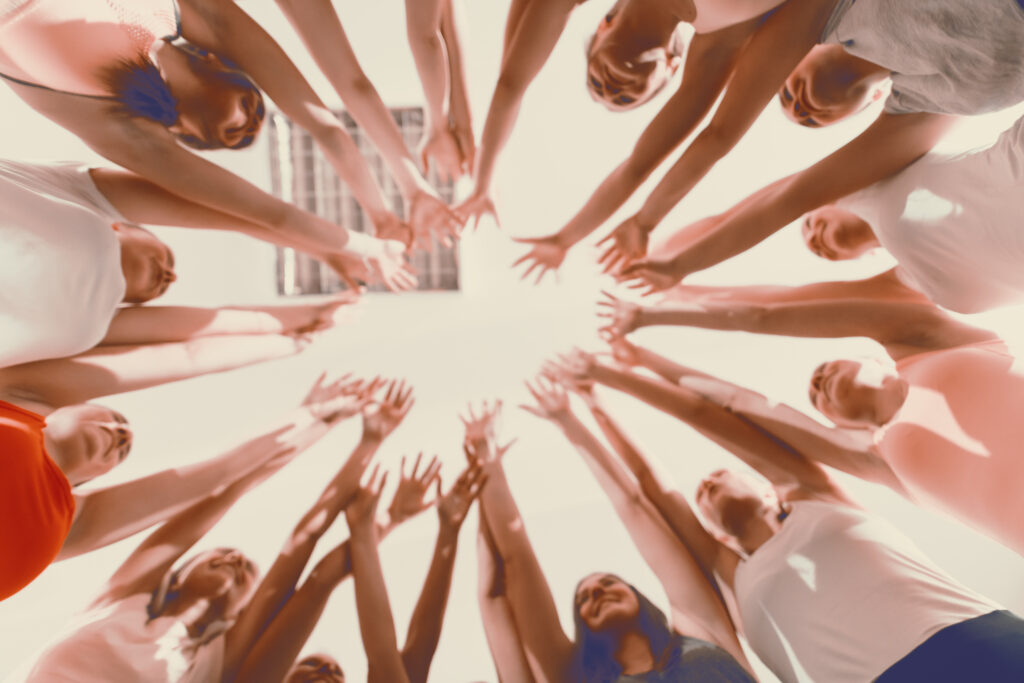Why We Still March in Croatia
Protest or marches for March 8, or International Women’s Day, has its roots in 1857, when female textile workers in New York marched against inhumane working conditions, 12-hour workdays, low wages, shorter working hours, better working conditions, and equal pay. [1] The painful truth is that even today, 168 years after the first March 8 march, women around the world—including in Croatia—continue to march for better working conditions and equal pay. Additionally, we march for issues associated with the fourth wave of feminism, such as sexual harassment, rape culture, and the lack of reproductive health rights.
In Croatian cities, marches for March 8 have been taking place since 2016, when the feminist initiative fAktiv organized the first Night March in Zagreb. Year by year, the number of cities participating in the Night March for International Women’s Day has grown. In addition to Zagreb, marches have been held in Rijeka, Pula, Split, Osijek, and Šibenik, and this year, Karlovac also joined.
In Rijeka, Zagreb, and Šibenik, this year’s march was held under the slogan “Feminism Has No Borders,” expressing solidarity with all women and LGBTQ+ individuals within and beyond national borders. Activists in these three cities called on citizens to join the march, emphasizing that the feminist struggle is intersectional and does not stop at national borders.[2] Speakers at the march also strongly addressed the various struggles faced by women in Palestine, Afghanistan, the United States, and other countries where women’s and human rights are systematically violated and continuously and brutally undermined.
Although we are united in this struggle, and marches across Croatian cities took place under the slogan “Solidarity Has No Borders,” we must emphasize that international issues are not the only ones oppressing women in our country. In Croatia, there are numerous and clear cases of violations of women’s human rights that justify, demand, and have led to continued marches.
(Un)Safe Environment for Women?
The first and most pressing reason is the fact that women do not feel safe in a country where the system protects rapists, murderers, and sexual predators. Femicide is not foreign to Croatian women—over the past year, there have been 18 femicides. After nearly a year and a half, the police officer who shot and killed Mihaela Berak was sentenced to 18 years in prison. A young woman’s life, according to the Croatian judiciary, is worth just 18 years. Croatian media have also been flooded with news about sexual violence and rape happening within the country. Women are not safe even in their most vulnerable moments during gynecological examinations, as demonstrated by a recent media-exposed case of rape during a medical exam. We know the name of that one perpetrator—Zlatko Topolovec—but the question remains: how many more cases have not been reported? Another horrifying case involves two men from Našice who raped a young woman with developmental disabilities. They received only two years in prison because the Croatian judiciary still considers participation in war a mitigating factor—even 30 years after the war ended. This clearly shows that the lives of some are still valued more than others, while the rights of victims, especially if they are women, are persistently pushed aside.
We also march because the public healthcare system does not care for women and because accessing abortion on request is extremely difficult despite being legally regulated. Even in cases where medical indications threaten a woman’s life, access remains challenging, as demonstrated when Mirela Čavajda shared her story with the public. In Croatia, abortion on request is legal up to the 10th week of pregnancy, but in reality, this does not guarantee access to the procedure. Approximately 60% of public healthcare workers refuse to provide abortions based on the so-called conscience clause, which allows them to deny care based on religious beliefs. We also march for the reintroduction of abortion rights into the Croatian Constitution, from which they were removed in 1990.
Marches across Croatian cities also protested the rise of anti-gender movements, which manifest in Croatia not only through marches advocating for the criminalization of abortion (the so-called “March for Life”) but also through regular gatherings of kneeling male prayer groups in cities across the country. These groups pray for “men to become spiritual authorities in the family who will courageously testify and pass on the Catholic faith; for premarital chastity, modesty in dress and behaviour, and the renewal of Catholic marriages; for an end to abortion and for married couples to be open to life; and for personal intentions.”[3] These “personal intentions” are broadly defined, allowing for the dissemination of various misogynistic, sexist, and patriarchal “prayers” in public spaces. This clearly ignores the fact that their place of prayer is a public space, which they occupy to impose their views, while women are implicitly unwelcome and expected to stand aside.
A Way Forward
Marching will undoubtedly continue in the coming years, but that should not prevent us from seeking solutions to the issues we march for. To fight institutional and societal oppression, action is needed on multiple levels. The most important steps include strengthening feminist and progressive initiatives. Activists and various NGOs must continue to put pressure on governing bodies through protests and campaigns, as well as through continuous education and mobilization of the public.
It is crucial to emphasize that the judicial system does not provide victims with adequate protection. Change will be visible when women develop trust in governing institutions. For this reason, it is essential to insist on judicial reform, ensure harsher penalties for femicide and sexual violence, and completely eliminate mitigating factors for such crimes, which are the culmination of systemic violence rooted in patriarchal power structures. Every attempt to downplay the responsibility of perpetrators sends a message to society that the lives of women and other vulnerable groups are worth less.
Practicing feminist solidarity on an international level is key in the fight against the global backlash against women’s rights and the rights of marginalized groups, whose existence is now undeniably evident. This year’s March 8 march demonstrated that the feminist struggle truly knows no borders. However, it also made it clear that we have far too many reasons to march within our own country. Despite persistent attempts to restrict the rights of women and LGBTQ+ individuals, resistance is growing and spreading, and women are reclaiming public spaces. We continue to march for safety, equality, and freedom—because none of us are free until all of us are free.
References
[1] Gender Museum. (n.d.). The Truth About March 8th. Retrieved from: https://gendermuseum.com/expositions/the-truth-about-march-8th/
[2] Šimičević, H. (2025). Feminism Has No Borders. Portal Novosti. Retrieved from https://www.portalnovosti.com/feminizam-nema-granica
[3] Vitezovi Bezgrešnog Srca Marijina. (2025). Another Peaceful, Grace-Filled, and Well-Attended Men’s Rosary Prayer Held in the Square. Retrieved from https://vitezovi-bsm.hr/hr/26/FOTO+%26+VIDEO+Odr%C5%BEana+jo%C5%A1+jedna+mirna%2C+milosna+i+posje%C4%87ena+mu%C5%A1ka+molitva+krunice+na+Trgu








